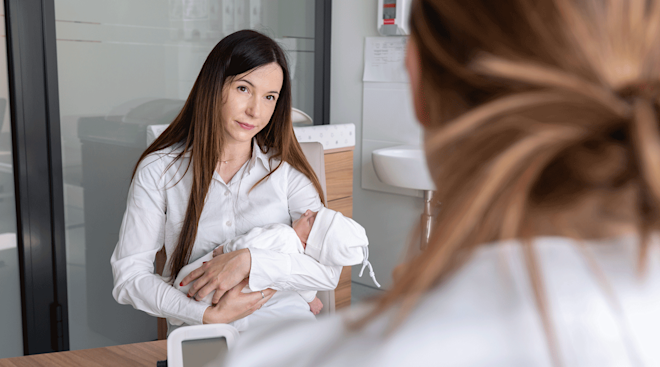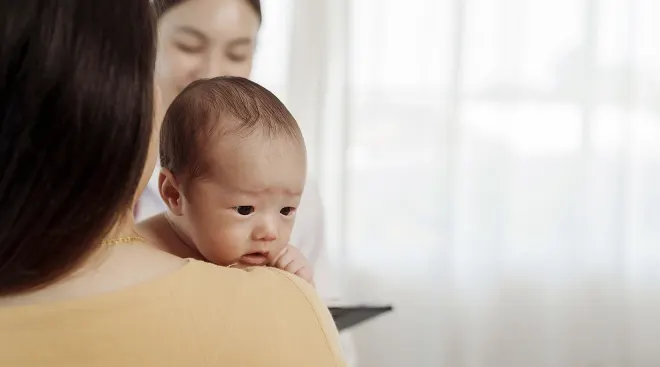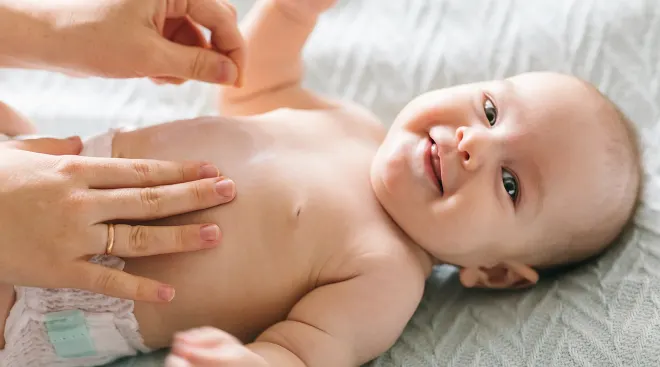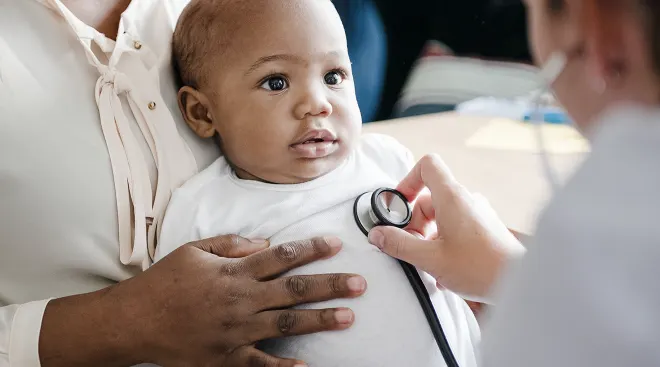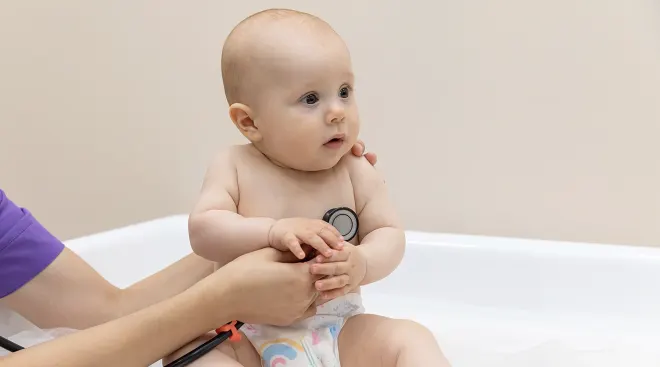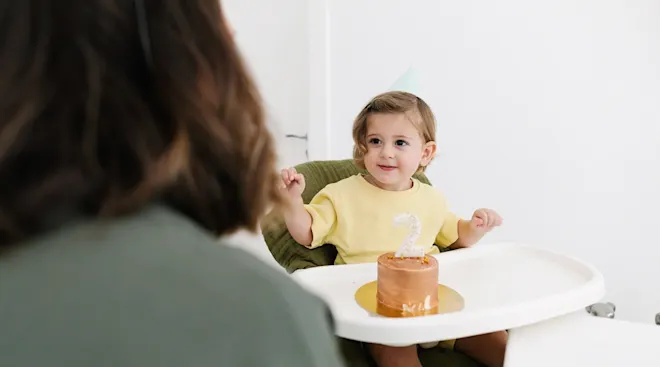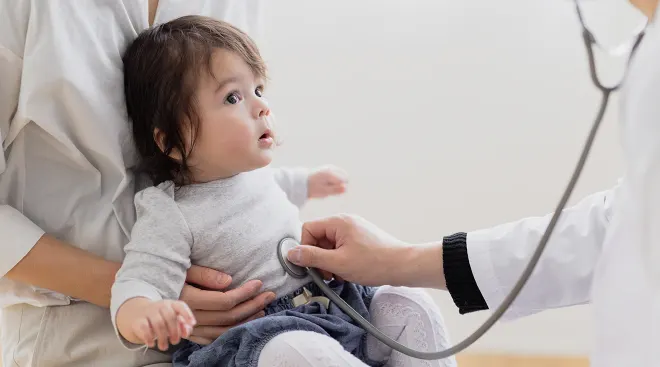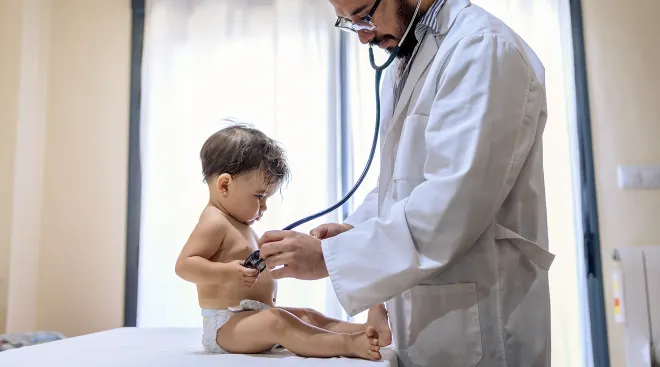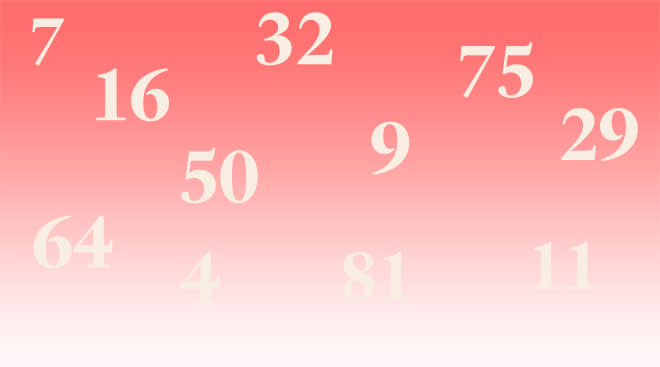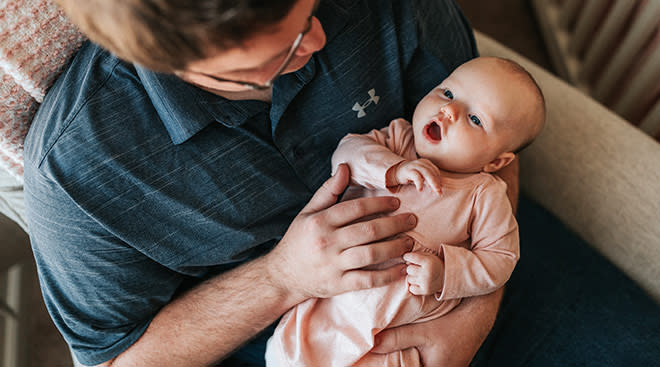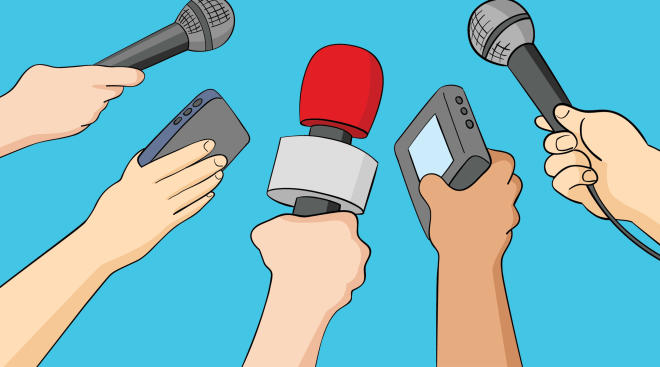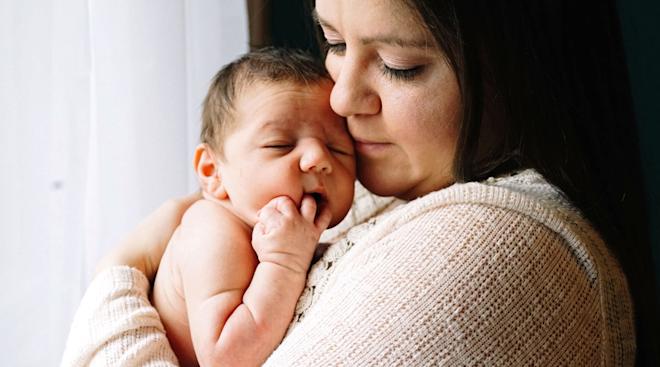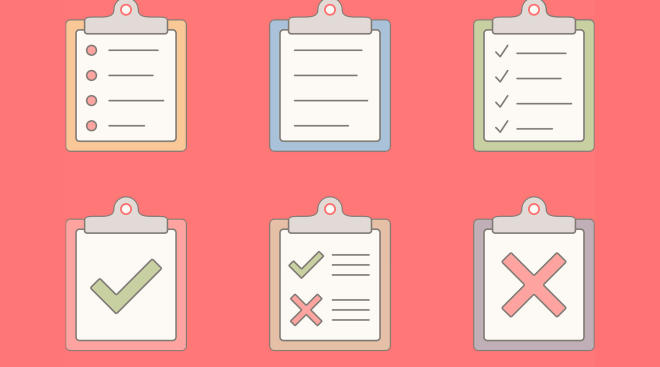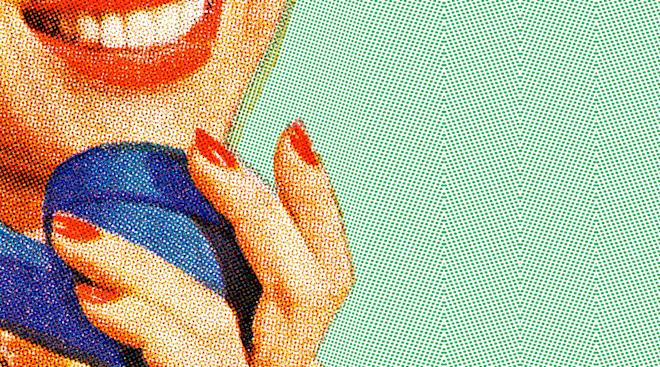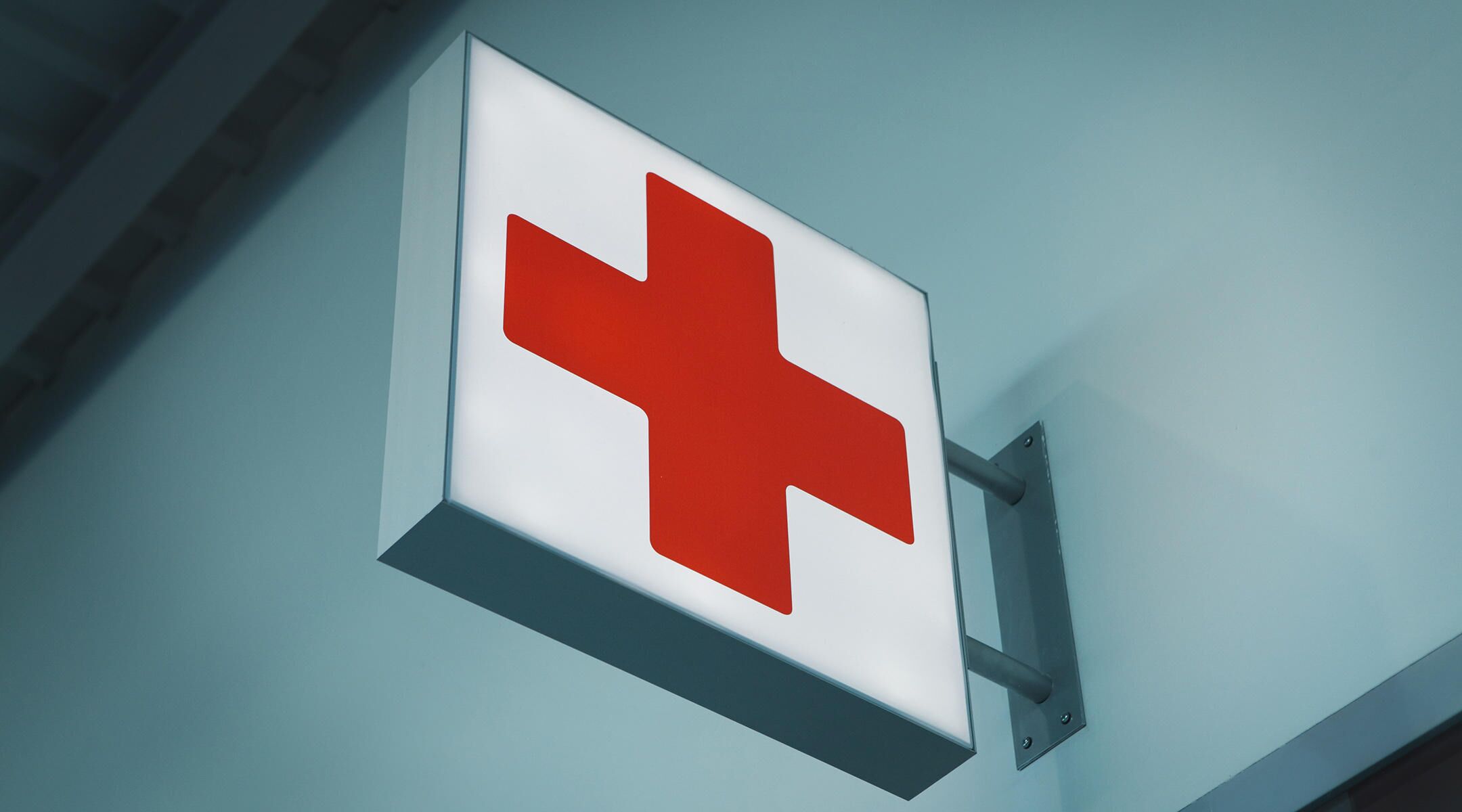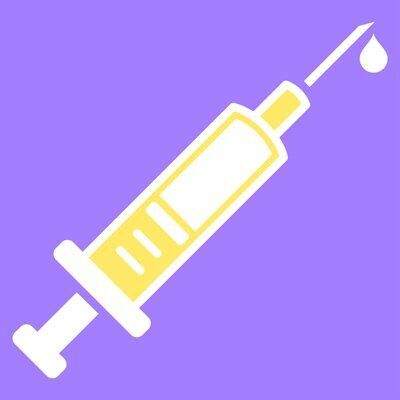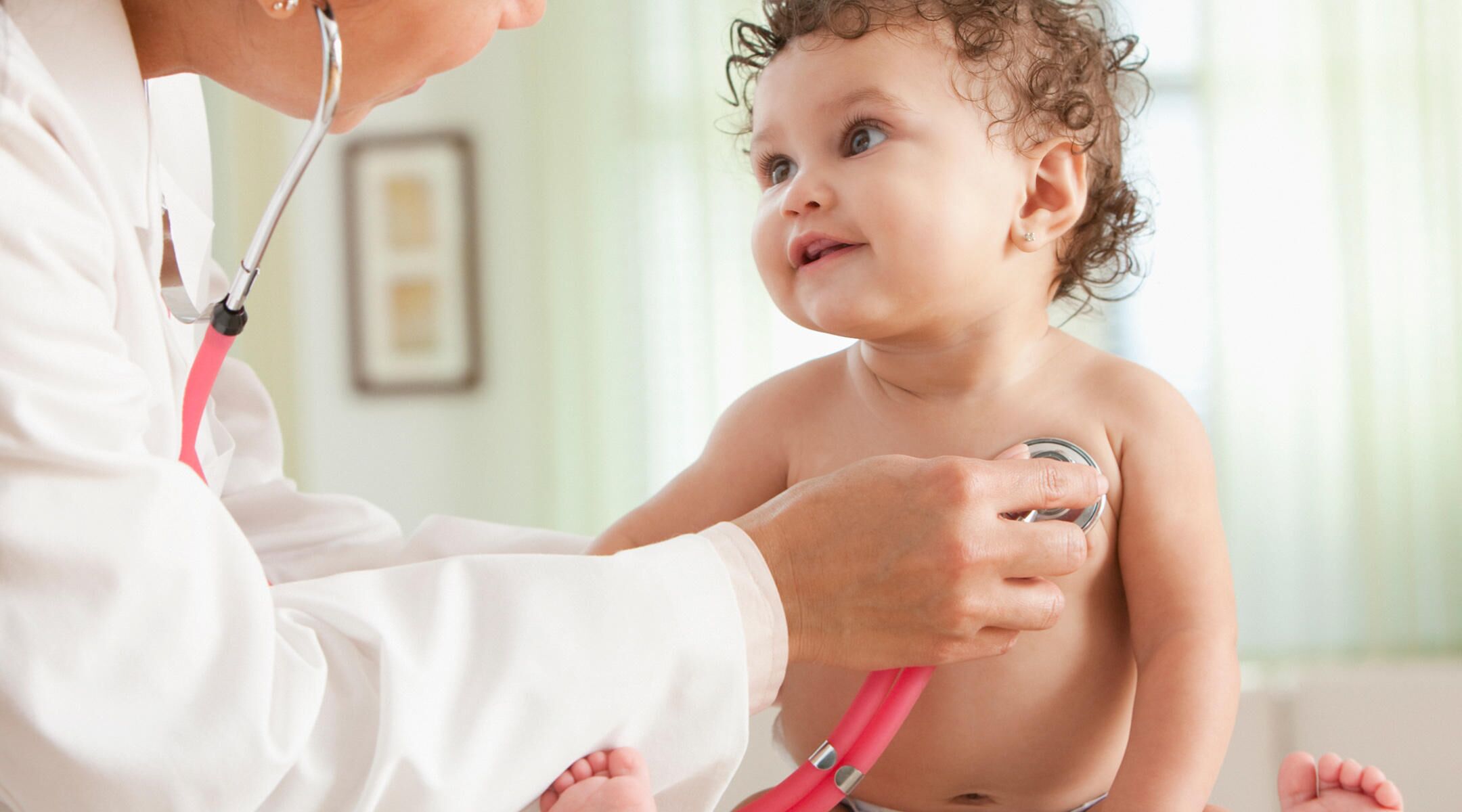Your Guide to Baby's Checkup Schedule
Baby will need to go to the pediatrician for several checkups during their first year of life and beyond—even if they’re perfectly healthy. The first three years are a crucial time in baby’s growth and development, and your chosen provider will want to keep close tabs on your little one’s progress. So when will each of baby’s pediatric appointments be—and what can you expect to occur at each? While some pediatricians and practices will operate on slightly different timelines, this is a general guide of what to expect. Here’s what to know about baby’s well visit schedule.
The American Academy of Pediatrics (AAP) recommends babies get checkups at birth, three to five days after birth (or sooner if your provider has concerns about baby’s health), and then at 1 month, 2 months, 4 months, 6 months, 9 months, 12 months, 15 months, 18 months, 24 months, 30 months and 36 months. Here’s what might happen at each.
- Physical exam: Baby will get a head-to-toe exam from their doctor at each visit, meaning their ears, eyes, mouth, skin, heart, lungs, abdomen, hips, legs and genitalia will all get examined to be sure they look healthy, says Denise Scott, MD, an Oklahoma-based pediatrician. They’ll also check the soft spots (fontanels) on baby’s head—which typically disappear within 12 to 18 months when the skull bones fuse together—as well as the shape of baby’s head to make sure it’s rounding out nicely.
- Measurements: Your pediatrician will always measure baby’s length (which later will be referred to as height), weight and head circumference, Scott says. These measurements will be recorded on a growth chart, so you’ll be able to see how baby compares to other infants their age, as well as note any signs of problems.
- Reflexes and behaviors: During the newborn period, pediatricians look for reflexes such as rooting and sucking, and check baby’s alertness and hip stability, says Anita Chandra-Puri, MD, a pediatrician at Northwestern Memorial Physicians Group in Chicago and a spokeswoman for the AAP. As baby grows, your pediatrician will be on the lookout for other behaviors relating to sleep, food, play and more.
- Milestones and development: At most visits, the doctor will gauge whether baby’s development is on track. They’ll ask you about baby milestones typical to their age and ask you if you have any concerns, Scott says.
Benefits of well baby visits
The pediatrician’s office is more than just a place to get vaccines, says Elizabeth Cilenti, MD, MPH, a pediatrician with Northern Virginia Family Practice. These visits are crucial to ensuring your child is developing well and staying healthy. Plus, they also allow parents to have in-person opportunities to ask any questions, raise concerns and take preventative measures before an issue becomes serious.
Want further information about what to expect during each of baby’s well visits? Experts and pediatricians break down everything to know about well baby visits below.
At Birth
Baby will be checked by a provider within 24 hours of birth, Chandra-Puri says. “We do a full exam, looking for normal body function.” Baby will also have a hearing screening to look for any signs of hearing loss in the newborn nursery, adds Jessica Madden, MD, FAAP, IBCLC, a board-certified pediatrician and medical director of Aeroflow Breastpumps. Additionally, baby will receive their first dose of the hepatitis B vaccine and a shot of vitamin K.
First newborn checkup
Your pediatrician will likely ask to see baby at some point in their first week to make sure everything still seems to be going well. The provider will measure baby to make sure they’re eating enough, discuss safe infant feeding and sleep practices and may do a quick blood test to screen for jaundice. They’ll also perform any necessary hearing test follow up, Madden says.
Two-week checkup
Cilenti recommends a two-week checkup for most newborns to ensure that they’re feeding and growing properly. However, it may not be necessary for every baby. While your pediatrician will schedule it, you likely won’t need to come in if both you and baby are doing well. That said, if baby is losing weight or struggling with jaundice or another issue, your provider will likely want you to come in.
One-month checkup
At baby’s one-month checkup, your pediatrician will want to hear how you’re adjusting to baby’s arrivals and about all aspects of their development, including eating, sleeping, playing, nutrition, safety and more. Depending on how your pediatrician’s office schedules vaccines, baby may also get the second dose of their hepatitis B vaccine, Cilenti says. Plus, baby’s provider will also want to check in with you to see how you’re managing and adjusting to life with baby.
Two-month checkup
The two-month visit will resemble the one-month checkup, but baby will get quite a few shots this time around, including their second dose of the hepatitis B vaccine if they haven’t already, as well as first doses of the rotavirus vaccine (RV); Diphtheria, tetanus, acellular pertussis vaccine (DTaP); Haemophilus influenza type B vaccine (Hib); Pneumococcal conjugate vaccine (PCV) and Inactivated polio vaccine (IPV), Cilenti says. Some good news? Many offices offer combined vaccines so there are fewer shots (up to three).
Four-month checkup
During baby’s four-month checkup, baby will get second doses of their RV, DTaP, Hib, PCV and IPV vaccines. Babies born preterm or at a lower birth weight may also receive a blood screening that helps detect anemia, the AAP notes. Along with this, your pediatrician will want to go over any milestones baby has or is close to hitting, as well as their diet and questions on starting solids.
Six-month checkup
At baby’s six-month checkup, along with a physical exam, they’ll likely get third doses of the RV, DTaP, Hib, PCV and IPV vaccines. They may also get the flu and covid vaccine if their pediatrician appointment falls during flu season, as both are recommended for babies 6 months and older, notes Loretta Cody, MD, a board-certified pediatrician based in Connecticut. Additionally, baby’s dental health will be checked, along with any emerging teeth.
Nine-month checkup
This checkup will be similar to the previous ones, with a physical exam and administration of doses for any outstanding vaccinations. Your pediatrician will also ask plenty of questions about baby’s growth and development, including motor milestones, how they’re acclimating to solids and if they’re experiencing separation anxiety. During this appointment, they may also play with baby to screen for any signs of developmental delays, particularly if there’s any increased risk due to preterm birth or family history of autism spectrum disorder (ASD), the AAP notes. However, note this screening may also happen later: “We normally give the autism screening between one and 2 years old,” says Chandra-Puri. “We’re looking at baby’s reaction to certain things. I also observe the child by asking their parents various questions.” If your child does show signs of an ASD, your doctor will recommend services or programs that can help with their development.
12-month checkup
Part of your newly minted toddler’s first birthday celebrations will be another trip to the pediatrician. At this visit, they’ll get their MMR, hepatitis A and chickenpox vaccinations, as well as any outstanding boosters needed and a flu and Covid shot, depending on the season, Scott notes. Plus, they’ll also get a blood test to screen for anemia and lead levels. Additionally, your pediatrician will follow up on milestones like crawling, walking, talking and other communication tactics, like pointing and babbling.
15-month checkup
During their 15-month checkup your now toddler will be measured, get a physical examination and be checked for developmental growth. They’ll also get any outstanding doses of the hepatitis B, Hib, PCV, IPV, DTaP, MMR, varicella and hepatitis A vaccines. Based on risk factors, your pediatrician may also test for anemia, lead and hearing and vision issues if they haven’t already, the AAP notes.
18-month checkup
The 18-month checkup will look similar to those that came before it, with a physical exam, screenings for any risk factors, administration of any outstanding vaccine doses and questions about your child’s overall growth and development. Your pediatrician will want to know if they’re walking, running or even climbing, as well as how many words they say and if they try to imitate you during play, adds Lauren Crosby, MD, FAAP, a pediatrician based in Beverly Hills, California.
24-month checkup
Can you believe how fast your little one is growing up? For their checkup, your two-year-old will go through the same checkup procedures as usual—they’ll be measured, undergo developmental surveillance, a psychosocial and behavioral assessment and any necessary screenings, including another blood test for anemia and lead. By this age, most children have gotten all recommended early childhood vaccinations, the AAP notes. Your pediatrician will also discusses aspects of your toddler’s development, such as car seat safety, screen time recommendations and more.
30-month checkup
By this checkup, your kiddo should be all caught up on their vaccinations, the AAP says. Your pediatrician will be curious to chart their physical growth, any milestone developments (such as jumping and speech), whether they incorporate pretend play and whether they’re displaying potty training readiness. “This age often brings a lot of concerns about behaviors—potty training, tantrums, etc.—so even though there aren’t usually vaccines at this visit, it’s a time where toddlers are changing rapidly, and this gives us a mid-year opportunity to check in,” Cilenti notes.
36 months checkup
Your 3-year-old is becoming their own little person, with peeks of their personality starting to brightly shine through. At the three-year checkup, your pediatrician will perform a comprehensive exam, including a vision, oral health and lead screening, as well as check in with you about any concerns, the AAP says. During this visit, they’ll also discuss some of the difficulties you might be dealing with, such as increased defiance, questions around toddler discipline and more.
Baby’s checkups may seem overwhelming now, but know there are some easy ways to prepare for each one. Below, experts share their tips on how to best prepare you (and baby) for each checkup.
- Learn about milestones: It’s helpful to know what baby and toddler milestones your child should be hitting when, Cilenti says. This can give you a preview of what your pediatrician will look for, as well as help you make any notes to bring to the appointment.
- Create a list of questions: All the experts recommend bringing a list of questions and concerns and bringing them up at the start of the checkup. “These are going to be things we’d ask about regardless, but knowing it’s at the top of your mind helps us set the agenda and make sure you get the answers you need to keep your child healthy,” Cilenti explains.
- Bring the essentials: Along with baby, you’ll also want to bring gear to keep them comfy—particularly if the office has long wait times. That includes things like a change of clothes, diapers, wipes, a bottle or snacks (depending on your child’s age), pacifiers and toys to keep them engaged. You’ll also want to bring baby’s immunization card and an extra copy of any paperwork if your office doesn’t have it yet (i.e. hospital discharge papers or baby’s medical records if you’ve switched pediatricians).
- Role play doctor: As your child gets older, Crosby recommends allaying any anxiety around the doctor’s office by teaching your child what to expect. She advises getting a toy doctor kit that your kiddo can role play with at home in preparation for their next checkup.
Frequently Asked Questions
Are well-child visits required by law?
While well-child visits aren’t legally required, they are strongly encouraged by all medical authorities and professionals. In fact, the AAP supports the need for regulation and legislation for childhood vaccines as a way to prevent disease, disability and death.
When should you pick baby’s pediatrician?
You should start looking for baby’s pediatrician around the beginning of the third trimester during pregnancy. “Many practices will offer prenatal visits to meet the pediatrician and see the practice to decide if it feels like a good fit for your family,” Cilenti says.
When should you switch baby’s pediatrician?
Once baby arrives, if you feel like your concerns aren’t being heard or have a gut feeling it’s time to switch baby’s pediatrician, you can do so at any time—and without any guilt. As Cilenti notes, all pediatricians are different, with various communication styles, personalities and practice philosophies. “We all want nothing more than for every child to be as healthy as possible. If you feel like you don't have the relationship with your pediatrician that’s going to accomplish that, then it's fine to look elsewhere,” she says. If you do switch baby’s provider, just make sure they have all of baby’s records sent to you or the new office for a seamless transition.
Baby’s growth and development are top of mind—for you and your pediatrician. But remember that growth isn’t always linear. “The focus of well child visits is around prevention,” Cilenti says. “If your child is having a new illness or issue we might suggest scheduling a dedicated visit to address that, or rescheduling the well child checkup until your child is feeling better!” Ultimately, know that while these checkpoints are there for you to use as a guide, you should feel empowered to reach out to your pediatrician at any point.
Please note: The Bump and the materials and information it contains are not intended to, and do not constitute, medical or other health advice or diagnosis and should not be used as such. You should always consult with a qualified physician or health professional about your specific circumstances.
Plus, more from The Bump:
Anita Chandra-Puri, MD, is a pediatrician at Northwestern Memorial Physicians Group in Chicago and a spokesperson for the AAP. She earned her medical degree from and completed residency at Northwestern University.
Elizabeth Cilenti, MD, MPH, is a pediatrician with Northern Virginia Family Practice. She completed her medical degree and residency at Indiana University School of Medicine and her master’s degree in public health at the Harvard T.H. Chan School of Public Health.
Loretta Cody, MD, is a board-certified pediatrician based out of Connecticut. She received her medical degree from New York Medical College and completed her residency at Yale New Haven Children’s Hospital.
Lauren Crosby, MD, FAAP, is a pediatrician with La Peer Pediatrics in Beverly Hills, California, as well as a mom of two. She earned her medical degree from UCLA School of Medicine and completed her residency at Cedars-Sinai Medical Center. She currently serves as an official spokesperson for the American Academy of Pediatrics.
Jessica Madden, MD, IBCLC, is a board-certified pediatrician, lactation consultant and neonatologist at Rainbow Babies and Children’s Hospital in Cleveland, Ohio. She also currently serves as the medical director of Aeroflow Breastpumps, as well as the founder of Primrose Newborn Care. She received her bachelor’s degree from the University of Notre Dame and her medical degree from Ohio State University. She completed her residency in pediatrics at the University of Massachusetts.
Denise Scott, MD, is a pediatrician with JustAnswer and a pediatric endocrinologist based in Oklahoma with over 30 years of experience. Certified in culinary medicine, Scott also runs the blog Feed Future Health and is the author of Feed Your Child's Future Health: Prevent Disease Before it Starts. She received her medical degree from the University of Texas Medical Branch and completed her residency at the University of Oklahoma Health Sciences Center with a fellowship at the National Institutes of Health.
Healthy Children (American Academy of Pediatrics), AAP Schedule of Well-Child Care Visits, July 2023
Healthy Children (American Academy of Pediatrics), Vaccines Your Child Needs by Age 6, November 2023
Healthy Children (American Academy of Pediatrics), Checkup Checklist: 4 Months Old), September 2023
Healthy Children (American Academy of Pediatrics), Checkup Checklist: 9 Months Old), September 2021
Healthy Children (American Academy of Pediatrics), Your Checkup Checklist: 15 Months Old, January 2022
Healthy Children (American Academy of Pediatrics), Your Checkup Checklist: 24 Months (2 Years) Old, August 2022
Healthy Children (American Academy of Pediatrics), Your Checkup Checklist: 30 Months Old, October 2022
Healthy Children (American Academy of Pediatrics), Your Checkup Checklist: 3 Years Old, October 2022
American Academy of Pediatrics, Vaccination Recommendations by the AAP, July 2023
Learn how we ensure the accuracy of our content through our editorial and medical review process.
Navigate forward to interact with the calendar and select a date. Press the question mark key to get the keyboard shortcuts for changing dates.


































